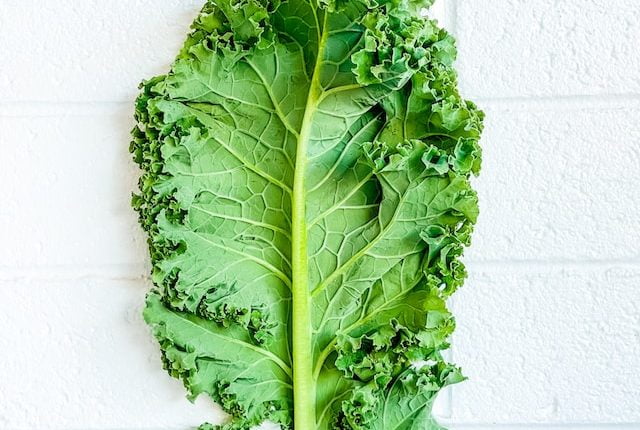Kale, a member of the cabbage family, is a popular leafy green vegetable that is known for its many health benefits and rich nutritional content. This superfood is loaded with vitamins, minerals, and antioxidants that promote overall health and well-being. Kale is also low in calories and high in fiber, making it an excellent choice for anyone looking to maintain a healthy diet.
In this article, we will explore the various health benefits and nutrition composition facts of kale. From its role in promoting heart health to its cancer-fighting properties, we will take an in-depth look at what makes kale such a nutritional powerhouse.
The Health Benefits of Kale
Kale is a superfood that offers many health benefits. Here are some of the most significant health benefits of kale:
1. Promotes Heart Health
Kale is an excellent source of nutrients that promote heart health. It is high in fiber, which helps lower cholesterol levels and reduce the risk of heart disease. Kale is also rich in antioxidants, which help reduce inflammation in the body and protect against oxidative stress, a key factor in the development of heart disease.
2. Boosts Immunity
Kale is loaded with vitamins and minerals that support a healthy immune system. It is particularly high in vitamin C, which helps boost the immune system and protect against infections and diseases.
3. Helps with Digestion
Kale is high in fiber, which helps promote healthy digestion and prevent constipation. It also contains enzymes that aid in the digestion of food and help the body absorb essential nutrients.
4. Promotes Healthy Skin
Kale is a rich source of antioxidants that help protect the skin from damage caused by free radicals. It is also high in vitamin A, which promotes healthy skin by supporting the growth and repair of skin cells.
5. Helps Fight Cancer
Kale is rich in compounds that have been shown to have anti-cancer properties. These compounds, known as glucosinolates, are broken down into bioactive compounds that help prevent the growth and spread of cancer cells.
The Nutritional Content of Kale
Kale is a nutrient-dense food that is packed with vitamins, minerals, and other essential nutrients. Here are some of the most important nutritional facts about kale:
1. Vitamins
Kale is a rich source of many essential vitamins, including:
- Vitamin A: Kale is high in beta-carotene, which the body converts into vitamin A. Vitamin A is important for healthy vision, immune function, and skin health.
- Vitamin C: Kale is one of the best sources of vitamin C, a powerful antioxidant that helps boost the immune system and protect against diseases.
- Vitamin K: Kale is extremely high in vitamin K, which is essential for healthy bones and blood clotting.
2. Minerals
Kale is also an excellent source of many essential minerals, including:
- Calcium: Kale is high in calcium, which is important for healthy bones and teeth.
- Iron: Kale is an excellent source of iron, which is essential for healthy blood and oxygen transport.
- Potassium: Kale is high in potassium, which helps regulate blood pressure and maintain healthy heart function.
3. Other Nutrients
Kale is also a rich source of other essential nutrients, including:
- Fiber: Kale is high in fiber, which promotes healthy digestion and helps keep you feeling full.
- Protein: Kale contains a small amount of protein, making it an excellent food to eat
4. Low in Calories
Kale is low in calories, making it an excellent choice for anyone looking to maintain a healthy weight. One cup of raw kale contains only about 33 calories, making it a great addition to any meal without adding too many calories.
5. Antioxidants
Kale is rich in antioxidants, which help protect the body against damage caused by free radicals. These harmful molecules are produced naturally in the body, but they can cause damage to cells if their levels become too high. Antioxidants help neutralize free radicals, protecting cells from damage and reducing the risk of chronic diseases.
How to Incorporate Kale into Your Diet
Kale is a versatile ingredient that can be incorporated into a variety of dishes. Here are some tips for incorporating kale into your diet:
- Add it to smoothies: Kale is a great addition to smoothies, adding a boost of nutrition without altering the taste too much.
- Make kale chips: Kale chips are a healthy alternative to potato chips and are easy to make at home.
- Add it to salads: Kale makes a great addition to salads, adding a boost of nutrition and a unique texture.
- Use it as a substitute for spinach: Kale can be used as a substitute for spinach in many recipes, including omelets, quiches, and pasta dishes.
Conclusion
Kale is a superfood that offers a wide range of health benefits and is packed with essential vitamins, minerals, and other nutrients. From promoting heart health to fighting cancer, kale is a valuable addition to any diet. With its versatility and ease of use, there are many ways to incorporate kale into your meals and reap the benefits of this amazing superfood. So, next time you’re at the grocery store, be sure to pick up some kale and start enjoying all the health benefits and nutrition facts it has to offer!
FAQs about Kale
A: Yes, kale is an excellent choice for weight loss because it is low in calories and high in fiber, which helps you feel full and satisfied.
A: Both cooked and raw kale are healthy choices. However, cooking kale can help make it easier to digest and increase the bioavailability of some nutrients.
A: While kale is generally considered safe and healthy, it can interact with certain medications, such as blood thinners. If you are taking medication, be sure to talk to your doctor before adding kale to your diet.





